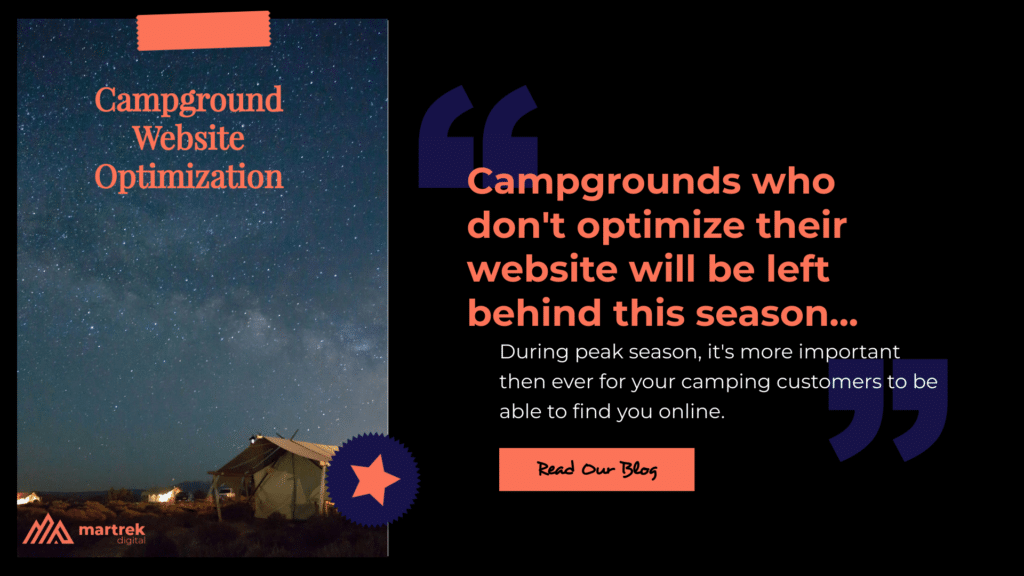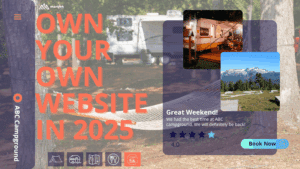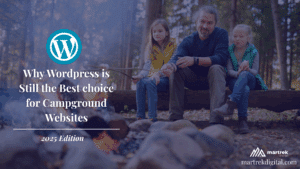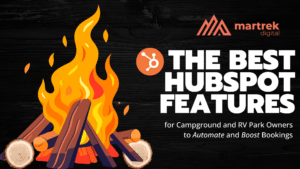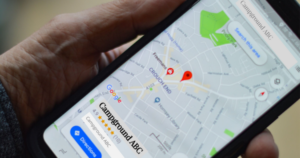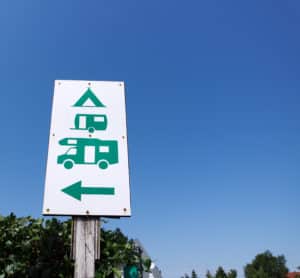As summer is in full swing, campers are eagerly planning their outdoor adventures and are experiencing them as we type this blog article. It is crucial for campground owners to ensure their online presence is ready to attract and convert visitors. A campground’s website serves as the digital front door to the campground, playing a vital role in capturing the interest of potential guests. In today’s competitive market, campground website optimization is not just a luxury; it’s a necessity.
A well-optimized website can significantly impact bookings and revenue. It’s not only about aesthetics but also about functionality and user experience. Campers today expect a seamless browsing experience, fast loading times, and easy navigation. If the website doesn’t meet these expectations, potential guests may abandon it for more user-friendly options.
Moreover, campground website optimization directly influences visibility in search engines. With more campers using online searches to find their next getaway, each campground needs to rank high in search results. By focusing on specific optimization strategies, campground and RV park owners can ensure that their site stands out among competitors and captures the attention of potential guests.
11 Key Strategies for Campground Website Optimization
1. Responsive Design
Ensure the website is mobile-friendly. With a significant number of users accessing sites via smartphones, a responsive design is critical. Test sites across various devices to ensure it provides an excellent user experience regardless of screen size. This not only improves usability but also positively affects search engine ranking, as Google prioritizes mobile-friendly sites. For more tips, check out our article here.
2. Fast Loading Times
Slow websites can frustrate users and increase bounce rates. Optimize images by compressing them without losing quality, use browser caching, and minimize code to improve your site’s speed. Tools like Google PageSpeed Insights can help identify areas for improvement. Remember, every second counts; a delay of even a second can lead to a significant drop in conversions. Learn more about improving website speed and more SEO tips here.
3. Engaging Content
Create compelling content that tells the story of your campground. Highlight unique features, amenities, and local attractions. Use high-quality images and videos to engage visitors visually. Remember, content is key for both user experience and search engine rankings. Blog posts about local events, wildlife, or tips for campers can also drive traffic to your site and establish your campground as a go-to resource. Discover the power of storytelling in our post on creating compelling content.
4. SEO Best Practices
Implement SEO techniques to enhance your campground’s visibility. Use relevant keywords, such as campground website optimization, in your content, meta tags, and headings. Optimize URLs and include alt text for images. Regularly update your blog with valuable content that resonates with your target audience. Backlinks from reputable sources can also boost your site’s authority. For a deep dive into SEO, explore our SEO tips for campgrounds.
5. Easy Navigation
Simplify your site’s structure to make it user-friendly. Use clear menu labels and organize content logically. Ensure that visitors can easily find essential information such as pricing, availability, and booking options. A well-structured site not only improves user experience but also encourages visitors to stay longer, reducing bounce rates and increasing the likelihood of bookings. Check out our tips on effective website navigation.
6. Online Booking System
Integrate a user-friendly booking system that allows guests to reserve their spots easily. A seamless booking process can significantly increase conversions. Provide clear instructions and make the checkout process straightforward. Consider offering promotions or discounts for online bookings to encourage guests to complete their reservations. Read more about streamlining your booking process.
7. Social Proof
Display reviews and testimonials prominently on your website. Positive feedback builds trust and can influence potential guests’ decision-making. Encourage satisfied customers to leave reviews on platforms like Google and TripAdvisor. User-generated content, such as photos or stories from past visitors, can also add authenticity and encourage new bookings. Discover more about the importance of using social proof.
Additional Considerations
8. Security and Privacy
Ensure that your website is secure by implementing SSL certificates. This not only protects your visitors’ data but also boosts your SEO, as search engines favor secure sites. Additionally, provide a clear privacy policy to reassure visitors about how their data will be used and protected.
9. Local SEO Strategies
Optimize for local search by claiming your business on Google My Business and other local directories. Include accurate business information, photos, and customer reviews. Local SEO helps you appear in search results when potential guests are looking for campgrounds in your area, increasing your visibility and
attracting more visitors. Learn more in our post on local SEO for campgrounds.
10. Regular Website Audits
Conduct regular audits of your website to identify and fix any issues. Broken links, outdated content, or missing meta tags can negatively impact your site’s performance. Use tools like Google Search Console to monitor your site’s health and make necessary improvements.
11. User Engagement Features
Consider adding features like live chat or chatbots to engage with visitors in real time. These tools can answer common questions, assist with booking processes, and enhance the overall user experience. Engaging with potential guests directly can increase their likelihood of booking and build a positive relationship with your campground.
Conclusion
By focusing on campground website optimization, you can enhance your online presence and attract more visitors during the peak camping season. A well-optimized website not only improves user experience but also boosts your search engine rankings, making it easier for potential guests to find you. Remember, your website is often the first impression campers have of your campground, so make it count.
For more assistance on optimizing your campground’s digital presence, contact Martrek Digital. Let us help you craft a compelling online experience that converts visitors into happy campers.
By implementing these strategies, your campground will be well-positioned to capture the interest of eager campers this summer. Start optimizing today and watch your bookings soar!
As always, make sure you are following us on Instagram and Facebook for more tips and tricks for campground marketing.

